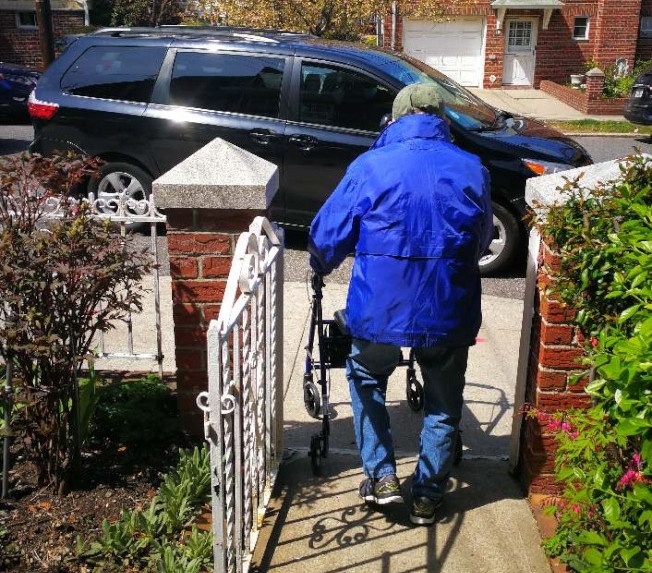
Via World Journal
Home attendants worry about keeping themselves and their clients healthy during the pandemic.Read the original story in Chinese at World Journal
Translated by Rong Xiaoqing
Many Chinese home attendants continue to work during the pandemic, taking care of seniors and others with with pre-existing health conditions who have been relying on them for years.
But as several have been infected with the virus themselves, and possibly infected their clients, the rest are struggling with the decision to keep working.
“We are high risk and underserved people ourselves. We don’t want to spread the virus and infect our clients,” one Chinese home attendant said. “But if we stop working, who would help them?”
Unlike doctors and nurses, home attendants have gotten less attention on the front line of the war against the pandemic. Everyday they take public transportation to get to the home of their clients. The commute inevitably increases the risk for themselves as well as their clients.
Candy Song, a home attendant with more than 10 years experience, has been taking care of two nonagenarians. One of her clients has to take dialysis periodically, and the other has Alzheimer’s. Song works five days of 24-hour shifts each week.
She said her Alzheimer’s client is in serious condition and remembers nothing. When Song told him not to go out because of the virus, the client didn’t understand. Once when Song was cooking, the client went out for the mail and also picked up some plastic bags, discarded gloves and face masks from the street. When Song told him to wash his hands, the client didn’t obey.
“I had to grab his hands and wash them for him,” Song said.
The 63-year-old Song has to take the F train from Manhattan to Queens, transfer to another subway line and then take a bus to get to the home of her clients. The commute takes more time now due to the reduced frequency of the subway trains.
Song said every time she takes the train, her heart beats faster because of the possibility that she’s exposing herself to the virus.
“No one wore masks in the first two or three weeks of the pandemic,” said Song. “But I had to wear a mask to protect my clients. And I was afraid of being attacked because of the mask all the time.”
Song has to walk through a long underground corridor to get to the subway platform. “Every time when I walk through the corridor, I am frightened,” she said. “A colleague of mine was beaten up there last week and had her purse snapped away only for wearing a mask.”
Song said she feels the pressure mounting in the recent weeks.
“Pressure can affect our immune system,” she said. “I am in my 60’s. I work 24 hours and don’t sleep well at night. My blood pressure, which is usually low, now is high. I feel dizzy all the time and have to take medicine at night to control my blood pressure. But through now, the government has no policy to compensate home attendants.”
Song said since most people are working from home now, adult children of seniors should share in some of care-taking work, the government should offer some stipend to these families and home attendants should get some relief assistance.
Meizhen Li, a home attendant who takes care of two seniors in Manhattan on weekends, said other than cleaning, cooking and laundering, she also has to buy groceries for her clients.
She throws away her gloves and mask and changes clothes before she gets into the clients’ home. She used to have a babysitting job too, but it was terminated recently. Her husband cannot work due to health issues, and she is the only breadwinner for her family, so she has no choice but to work.
Li said it’d be greatly helpful if the government can provide livery cars to home attendants. She doesn’t want to contract the virus during her commute and then spread it to her clients.
Dr. Henry Chen, President of SOMOS Community Care, said he learned about four cases in which seniors were infected by their home attendants. One of the home attendants died, and her client was intubated.
Chen said many newly confirmed cases in the Chinese community are related to home attendants who have to commute by public transportation. He calls for people in need to think twice of whether they’d keep their home attendants, and also for home attendants to try to reduce the time they spend in public transportation.









